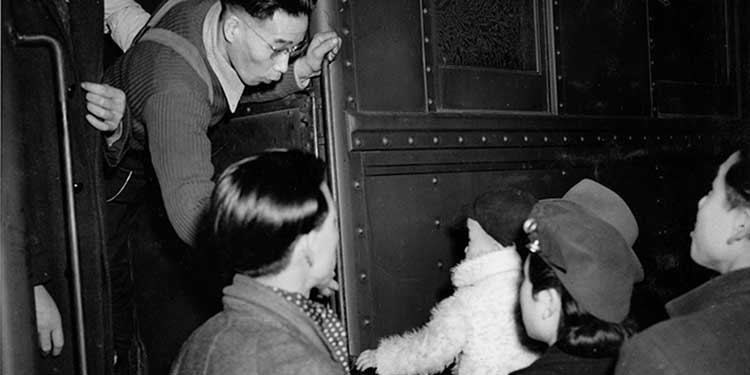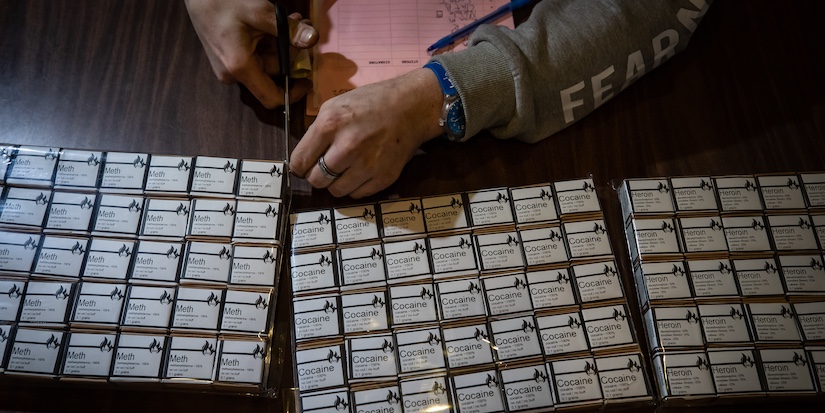Arts & Culture
Snippets from Marpole-Richmond Review, March 11, 1942
Published 2:11 PDT, Tue May 9, 2017
Public sentiment has lashed itself into a
fury which cries: “Crucify them!” and the government has yielded to the storm
and plans to tear up all Japanese roots in this area.
Strange that there was no such outcry when
Canada was so busy shipping munitions to Japan these last several years! The
Japanese militarists, we are told have enough scrap iron on hand to last them
four years, and they can of course thank Vancouver for doing its very
considerable bit in making this provision for them.
Then these patriots who now so loudly cry for
the annihilation of the local Nipponese had nothing to say, so far as we can
remember, in criticism of the U.S.A. in supplying that same militarist
government with sufficient oil with which to wage several years of war.
How much of this outcry against the peaceful
fishermen and farmers who have toiled for thirty years or more here to make a
home is really fear of them, and how much is jealousy?Is not ninety per
cent of the storm due to the same race hatreds which actuate Herr Hitler
against the Jews?Do not those howlers of expulsion behold in the
present turn of events an opportunity to oust from their midst people who have
perhaps worked harder, minded their own business better, kept the country’s
laws more rigorously, succeeded better than have many white Canadians?
How much of this is outcry is patriotism and
how much pure unallowed brute selfishness—the desire to get rid of a
competitor?....
They are Canadians by every right of birth.
But already the authorities have taken their
boats away with very little compensation, we understand, being granted them for
their property. Now the flaring headlines loudly proclaim that the Japanese
cars are to be confiscated. Will that be done also without compensation?
What is this, anyway—Hitler’s country or a
democracy?
At any rate, there is no occasion for the
provocative cartoons, the sneering quips, the unvarnished slurs which at leastone
of the city paperssees fit to employ against these boys and girls who had
no part in making this war and and whose approval of the war-thirsty government
which now presides in Tokyo is probably as non-existent as our own.
If the same ruthless expulsion is applied to
second and third generation Germans and Italians as is promised for the Japs,
look around and see who it is going to effect? Some of your most respected
citizens and officials would come in the banned class. And why more harsh on
the Jap than on the German? Would it not be more fitting if the Canadian and
American profiteers who supplied militarist Tokyo with war equipment be sent to
concentrations camps rather than that these local Japanese should be punished
for crimes which they never committed?
Reprinted in the March 18, 1942 Review
From March 8, 1942 “The New Canadian” a Nisei
[Canadian-born people’s] paper
The ruins of a shattered world crumbled
faster and closer around 20,000 harassed and bewildered people over the
week-end and today, as governmental machinery moved on with its work of ‘demolition.’
Fathers, husbands, brothers being removed each day; livelihood and means of
sustenance going and gone; ordered to ‘leave the protected area forthwith’ and
yet ordered to ‘remain quietly in their homes,’ forbidden to stir into the
street after dusk on penalty of six months at hard labor; automobiles, radios,
camera confiscated—the 20,000 feel the heavier blows of war every hour.
Wednesday April 1, 1942
“Mass Steveston Evacuation”
Arrangements have about been completed for
the definite removal of all Steveston’s Japanese population…
“Young Evacuee Describes Journey”by
Yosie Yasui aged 19
(Yasui, a recent high school graduate, was
among the first group sent to a road work camp in the Rockies.)
RAINBOW, B.C. (via Red Pass)
--No matter what happens, I doubt if I shall
ever forget the past week. It has been a week of great significance, something
to be remembered from generation to generation of Japanese-Canadian people in
this country.
Even now I can clearly picture the masses of
the people standing on the platform that momentous Monday night, busily saying
good-bye, shaking hands, bowing stiffly to those of us on board the train.
Suddenly the whistle blows, the train jerks and pulls slowly out, and hundreds
of voices and hundreds of hands are raised in farewell. But, in a few fleeting
minutes, the throng is a shadowy, indistinct mass in the evening dusk, and then
darkness and distance sweep them out of sight. And suddenly, I realize more
vividly, more deeply, that we are leaving Vancouver, leaving home and
everything dear and familiar.
Wednesday, April 23, 1942 Review
“Families Leave Steveston Saturday”
Saturday last Richmond was interested to see
two C.P.R. coaches and a baggage car being hauled along the B.C.E.R. by a “shunter.”
The train went down to Steveston and returned later with one coach filled with
Japanese elders and children, all bound for the sugar beet fields of the
Lethbridge area, Alberta. There were seventy-eight passengers in all, there
being not enough ready to fill the second coach….Mr. Kuba states that Steveston
will be empty of Japanese by the last of the month. Farmers, fishermen, storekeepers,
cannery workers, etc., are included in the migrants, many of whom are to have
their first train ride.
Wednesday, April 29, 1942 Review
“Japanese Leave for Town of Greenwood”
The special C.P.R. train which came rumbling
over the B.C.E.R. tracks Saturday morning clanged back townward again in the
afternoon, bearing 160 Japanese passengers from Steveston and their baggage,
all bound for Greenwood, B.C. There were few men among the migrators, only old
or ill men being allowed in this new-old town…Thus Steveston is gradually being
depleted of its population. Stores now appear on Moncton street boarded up, and
many houses have their windows similarly treated.
The migrants hope and expect to return again to their “native” village, for to hundreds of them it has been their birthplace and the only home they have ever known.






























